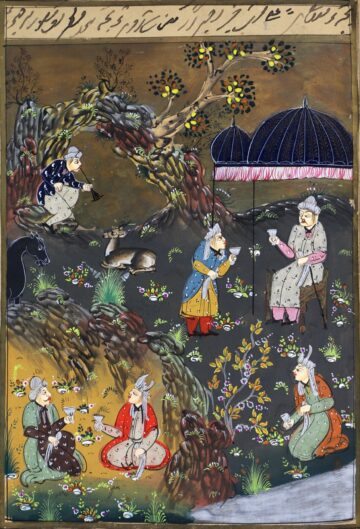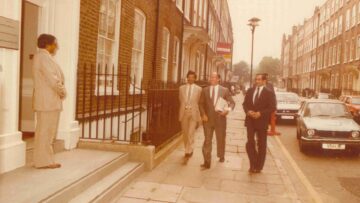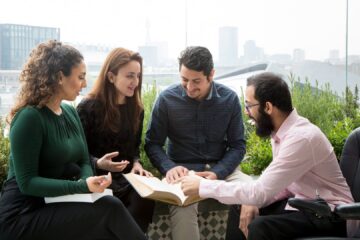Ten students from five countries were accepted into the Institute’s Graduate Programme in Islamic Studies and Humanities (GPISH), which began in late September. The students selected from amongst 150 applicants will embark on an intensive two-year course in the faith, culture and thought of Muslim societies, leading to a Masters degree from a British university in the student’s own area of specialisation.
“I am interested in understanding and examining the whole picture of Ismailism in the Indian Subcontinent – literature, culture, traditions and practices. I believe that the Institute would provide me with critical skills and knowledge to deal with these issues.”
Wafi Ahmed Momin, Pakistan, Class 0f 2006.
Nine years after its launch, the Graduate Programme continues to attract high-calibre students with a variety of academic backgrounds from North America, Central and South Asia, Europe and the Middle East. This year’s intake includes students from Canada, Iran, India, Pakistan and Tajikistan.
“Ismaili history has been misrepresented throughout the ages. They have been negatively labelled as Assassins and Batinis, amongst others. I have joined the Institute to learn about the Ismailis and their history without biases. For me sifting through history pages and learning to separate truth from fiction in the guidance of a teacher is a singular aspiration.”
Qudsia Naunehal Shah, Pakistan – Northern Areas, Class of 2006
The Programme provides an interdisciplinary approach to the materials of Muslim culture and thought, and encourages a perspective that is not confined to the theological and religious heritage of Islam, but seeks to explore the relationship of religious ideas to broader dimensions of society and culture.
‘I attended a number of conferences while studying at the Institute. I travelled to Austria, Egypt and North America as well as within the UK. This opportunity was very stimulating. You learn such a lot about current developments in the field.’
Miriam Ali de Unzaga, Spain, Class of 2000
The first two years of the programme are spent developing language skills and engaging in a wide range of courses bridging the fields of History, Religious Studies, the Social Sciences, Philosophy and Art. At the end of the first year, students have the opportunity to immerse themselves in Arab culture and language through a summer programme in an Arabic-speaking country. In the past, students have visited Egypt, Morocco and Yemen. In the summer of the second year, students apply the lessons learned from the classroom to field projects designed with their own research interests in mind. In the past countries as varied as China, India, Canada, Syria, Tajikistan and Tanzania have been chosen.
“The Institute is committed to all its students with a variety of needs. You can improve your English language skills, your academic skills, and you can obtain work experience in a variety of institutions. Nothing could be better for future prospects.”
Abulmamad Iloliev, Tajikistan, Class of 2002
More information on the Programme can be obtained from the Graduate Studies pages of the website.






